When it comes to reducing waste, recycling and composting are two of the best ways to help protect the environment.
While both have their benefits, they differ in their processes and effectiveness.
Which is better for the environment, and is there a better solution that can help reduce our impact?
- Recycling versus composting
- Benefits of recycling
- Benefits of composting
- Which is better for the environment?
- What should I recycle?
- What should I compost?
- Bioplastics versus compostable alternatives
- Composting versus recycling versus landfill cheat sheet
Recycling vs Composting
The easiest way to tell the eco-friendliness of an item is whether or not we can recycle or compost it.
These terms aren’t interchangeable and have little in common, but both aim to reduce waste, protect our environment, and deal with end-of-life products.
The difference between recycling and composting may seem obvious. One renews materials while the other degrades organic products into soil.
Let’s take a closer look at the two processes.
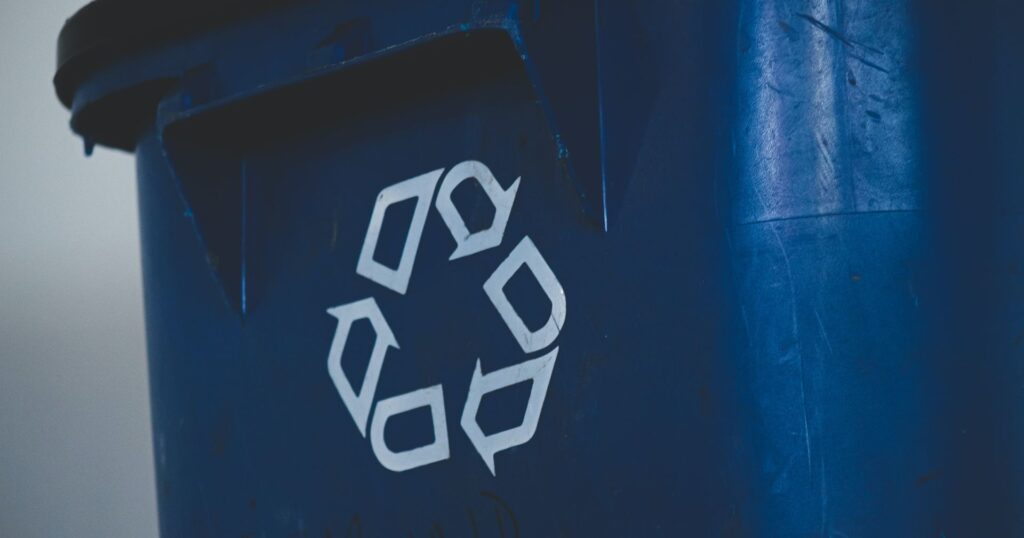
Recycling
Recycling involves processing materials that would otherwise be discarded as waste to turn them into new products. Items are often melted or broken down into raw materials to be manufactured into a new product.
This goal is to reduce the use of new resources, conserve energy, and prevent materials from ending up in landfills. Recycling can also help reduce greenhouse gas emissions and conserve natural resources.
As well, there are two important subcategories within recycling: post-consumer and post-industrial.
Post-consumer recycling is made from everyday items that are recycled by consumers, such as cardboard, paper, and plastic containers.
Post-industrial recycling means scraps have been generated from the manufacturing processes, melted down, and put back into the process.
There is also a distinction within recycling: item-to-item and downcycling.
Item-to-item recycling means an item is recycled back into itself or something similar. For example, a glass bottle is recycled into another glass bottle.
Downcycling is the term for an item that has been made into something completely different. For example, plastic bottles are downcycled into carpeting.
Unfortunately, there is a downside to recycling: it requires a significant amount of energy and resources to collect, sort, and process the recycled materials.
Composting
Composting is the decomposition of organic materials, such as food waste, leaves, plants, and yard trimmings, to create nutrient-rich soil.
It can be done at home or in large-scale facilities, requiring minimal energy and resources.
High-quality compost is full of nutrients and is brimming with biodiversity. The soil can be used in agricultural land or even your home garden. Low-quality compost generally comes from industrial composting facilities and is usually sold to construction sites.
Composting aims to reduce waste, conserve resources, and promote soil health. It can help reduce greenhouse gas emissions, improve soil quality, and divert waste from landfills.
But composting does have its limitations, including the time it takes to produce compost and the difficulty of composting certain materials.
Learn More: Compostable versus Biodegradable: What’s the difference?
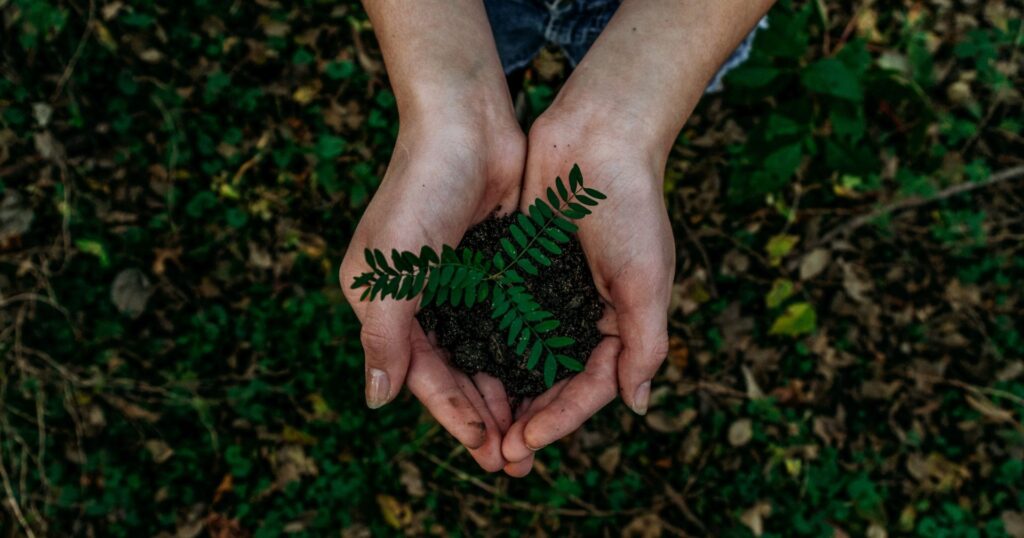
Benefits of Recycling
Recycling has many benefits and is a great method of addressing plastic pollution. With it, we’re able to get a few more uses out of a material instead of just throwing it away.
Recycling allows us to:
- Conserve our natural resources
Trees make paper, and corn makes bioplastic. Aluminum makes cans, and natural gas makes plastic. By recycling, we’re getting more use out of each product we manufacture.
- Reduce greenhouse gas emissions, energy usage, and water consumption
Most materials make a large environmental impact when converted from raw goods. Recycling results in more efficient production and less items that need converting.
- Minimize how much trash ends up in our landfills
Landfills emit methane, one of the most common greenhouse gases in our atmosphere. It can also leach into the groundwater and into our water supplies. Recycling helps keep products out of our landfills.
Benefits of Composting
Composting is an entirely natural process. We’re able to create products from natural sources that are carbon neutral without worrying about their end-of-life effect on the environment.
Composting can:
- Decrease waste in landfills
The majority of waste in landfills is compostable – the bulk of which is food. By composting our food waste, we would greatly decrease the land space that landfills take up.
- Create nutrient-rich soils and increase biodiversity
As compostable products decay, they become organic material that provides nutrients to the soil. These nutrients can then support plant growth. And adding compost to soil helps attract microorganisms that help create a healthier ecosystem.
- Reduce greenhouse gas emissions
Landfills release methane gas as products break down, contributing to our greenhouse gas crisis. But when compostables are properly composted, the carbon that makes up methane gas is sequestered away into the soil.
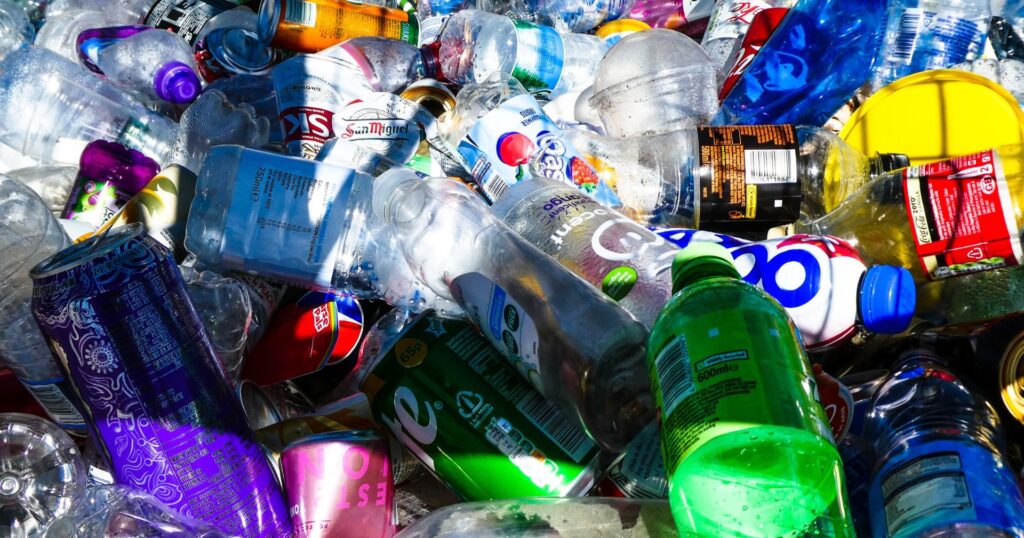
Is composting or recycling better for the environment?
Both recycling and composting have their benefits and drawbacks, but which is better for the environment? The answer is more complex than one might think.
Both recycling and composting have their drawbacks.
Recycling requires significant energy to collect, sort, and process the materials. And most materials can only be recycled a finite number of times before they become unusable, at which point they’re sent to a landfill.
This means recycling isn’t a completely closed-loop system, and waste is still generated.
On the other hand, composting, like recycling, can be done incorrectly. This results in the release of harmful methane emissions when the product is sent to a landfill. Additionally, composting can’t be used for all types of waste, such as plastics and metals.
Both recycling and composting are very beneficial when utilized correctly. And, ultimately, the best option for our environment depends on the individual circumstance.
With the current state of climate change, recycling and composting are of utmost importance. We should all be composting and recycling whenever possible.
Finding a balance between the two will minimize waste and maximize environmental benefits. With proper waste management, we can help create a more sustainable future for generations to come.
What should I be recycling?
You should recycle whatever your curbside program accepts. Usual items include boxes, paper, glass, cans, plastic bottles, and plastic containers.
Keep in mind that your city’s recycling program may require you to clean some recyclable items, such as plastic containers or glass jars, before placing them in your bin.
Some may also require you to remove the lid from jars, crush jugs, or break down boxes.
What should I be composting?
Organic material can go into your compost. This includes food and yard scraps, paper packaging soiled with food (such as pizza boxes), paper towels, and even tissue.
But when it comes to items that are both recyclable and compostable, choosing to recycle them is better than composting. This includes bioplastics, paper, and cardboard.
The reason it’s better to recycle those in-between items is because they can quickly be turned back into something else. Composting can take a few weeks to a few years, so those tougher materials, such as bioplastics, are better off recycled.
Recycling is also friendlier to contamination. When a composted item has ink, adhesives, or other contaminants, it becomes challenging to sift them out of a compost pile. This ends up degrading the output quality.
But composting items like food and yard waste, that don’t have additives, results in high-quality compost that enhances the land it’s added to.
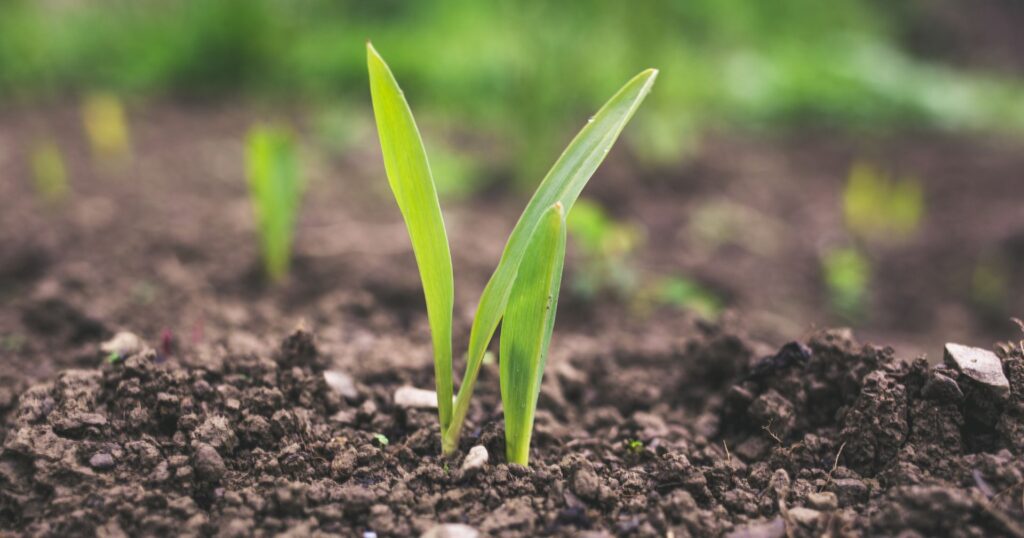
Bioplastics versus Compostable Alternatives
Bioplastics have started to grow in popularity, but they’re causing more harm than good.
Made from renewable sources such as corn, sugarcane, and vegetable oil, they can be designed to have the same durability and flexibility as conventional plastic.
But bioplastics can’t be recycled because they contaminate the conventional plastics they’re recycled with.
And when it comes to composting, bioplastics require specific conditions and facilities to properly break down. Otherwise, these so-called “eco-friendly” plastics will degrade into microplastics and release methane gas if they end up in landfills.
Compostable alternatives are made from organic materials, such as wood and paper, that can naturally break down into nutrient-rich soil.
They can be composted both in-home and in an industrial facility. But either way, they will break down quickly without releasing harmful chemicals or gases if composted properly.
Bioplastics are only useful if there is no other choice. Luckily, mother nature provides us with better options.
Compostable alternatives are a sustainable solution that can help divert waste from landfills and return valuable nutrients to our soil.
Not to mention, they can help reduce plastic waste while protecting our environment.
This is especially applicable for single-use items. Materials like wood and sugarcane will break down quickly, and leave no trace behind.
Bioplastic single-use items, on the other hand, will pile up beside conventional plastics, contributing to our plastic waste problem.
Learn More: 4 Reasons Bioplastics Won’t Solve our Plastic Problem
Composting vs Recycling vs Landfill Cheat Sheet
Below is a general cheat sheet of what belongs in compost, recycling, and the landfill.
What is compostable and recyclable will depend on your community. Be sure to check with your local waste management facility for a complete list.
Also pay attention to each item’s instructions. You may need to clean or break down an item before the product is deemed compostable or recyclable.
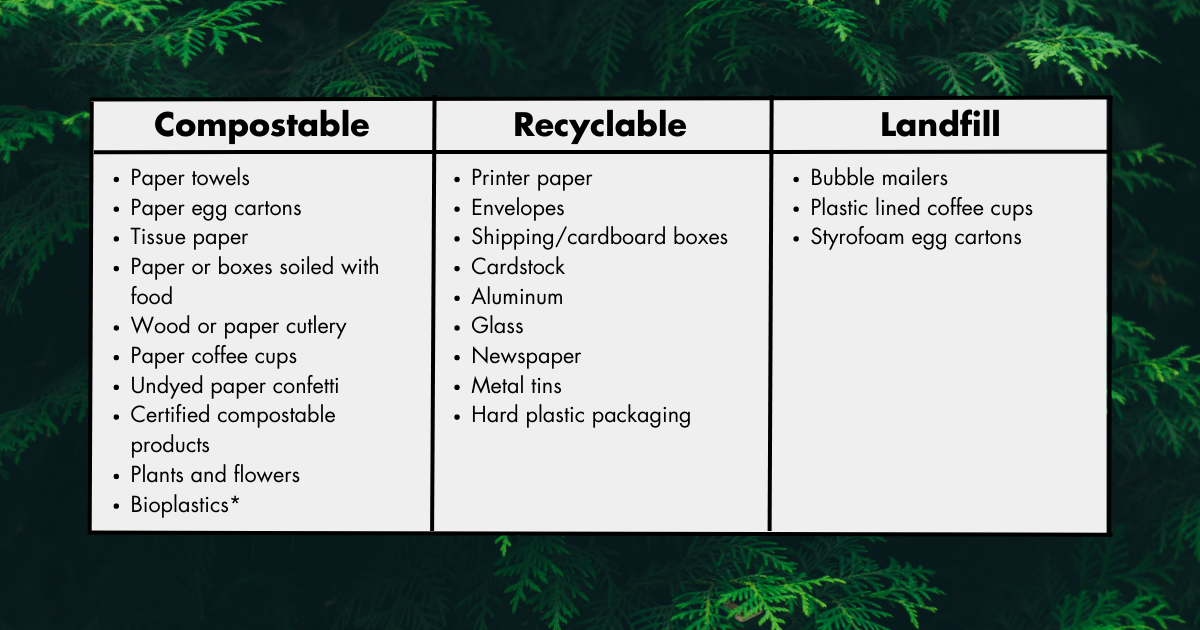
*While biodegradable plastics (such as PLA) are considered compostable, they require specific facilities and conditions to decompose. Instead of using bioplastic products, consider fully compostable or recyclable products.



